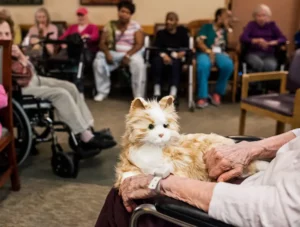Supporting Someone with Dementia
Dementia is a term used to describe a series of diseases that affects the brain. There are many types of dementia such as Alzheimer’s disease and symptoms vary from person to person.
Being diagnosed with dementia can be a daunting experience. It brings a lot of changes and challenges to a person’s everyday life.
If you’re a carer or a family/friend of a person who has been diagnosed with dementia you can help ease their daily experiences by supporting them in their everyday life and activities.
There are many factors to consider asides from the symptoms, such as the persons current living environment, the support network and relationships around them. These “factors of life” are central to mental wellbeing regardless of age, ability or diagnosis.
It is helpful to understand the impact the disease is having on the person’s life. Everyone is different and the disease can affect people’s lives differently regardless of the symptoms, including how it affects a person’s social activities and daily enjoyment.
You can help by:
- Remembering they are still a person with emotions and thoughts. They are still your patient, relative or friend.
- Include them in activities and conversations.
- Respect their wishes and independence where appropriate.
- Focus on what a person can do rather than what they can’t.
- Be a good listener. Loneliness and isolation are a known issue with dementia patients, so be willing to listen.
Introducing the Dementia Cat “Robotic Cat”
More and more products are becoming available to help people with dementia. They all have their own individual benefits depending on which item you purchase or which aspect of life you’re trying to improve.
Dementia patients frequently become agitated, anxious and frustrated. Research has shown that an effective, drug free way to soothe and ease a dementia patient is to give them a soft toy they can interact with.
Introducing the dementia robotic cat. This item is sold by an American company and it has shown to provide comfort for people living with dementia. It’s a battery powered cuddly toy that purrs, meows and moves. It also responds to touch when its petted and hugged.
The robotic dementia cat has bought joy and purpose to many elderly people suffering with dementia. It has helped patients feel a sense of purpose when they pet and cuddle the ‘cat’. It helps encourage a sense of empowerment, companionship and enjoyment.
The Robotic Cat can increasingly be found in many care homes across the UK.
These robotic ‘animals’ are more manageable than pets and don’t require the maintenance of feeding and monitoring, whilst supplying the same known benefits of having a pet. In some cases, the cuddly toy can provoke nurturing and caring memories helping with loneliness and isolation.

Sensory and Educational
Sensory toys can bring different types of enjoyment and interaction for patients. It can improve their feelings of seclusion and anxiety allowing them to have some control and giving them new interests and hobbies.
As well as these toys, there are items that help improve quality of life. A few examples are, dementia clocks, memory calendars and door signs. These have been designed to encourage a person to be as independent as possible, allowing them to continue to live their daily life as normal as possible.
Supporting someone with dementia can be difficult, frustrating and deflating. But it can also be joyful, rewarding and encouraging. Every person is different and the most helpful way to benefit someone’s life with dementia is to remember they are still a person who has emotions.
Click on the following links to discover how CHS can find you the right dementia care home or dementia home care.



